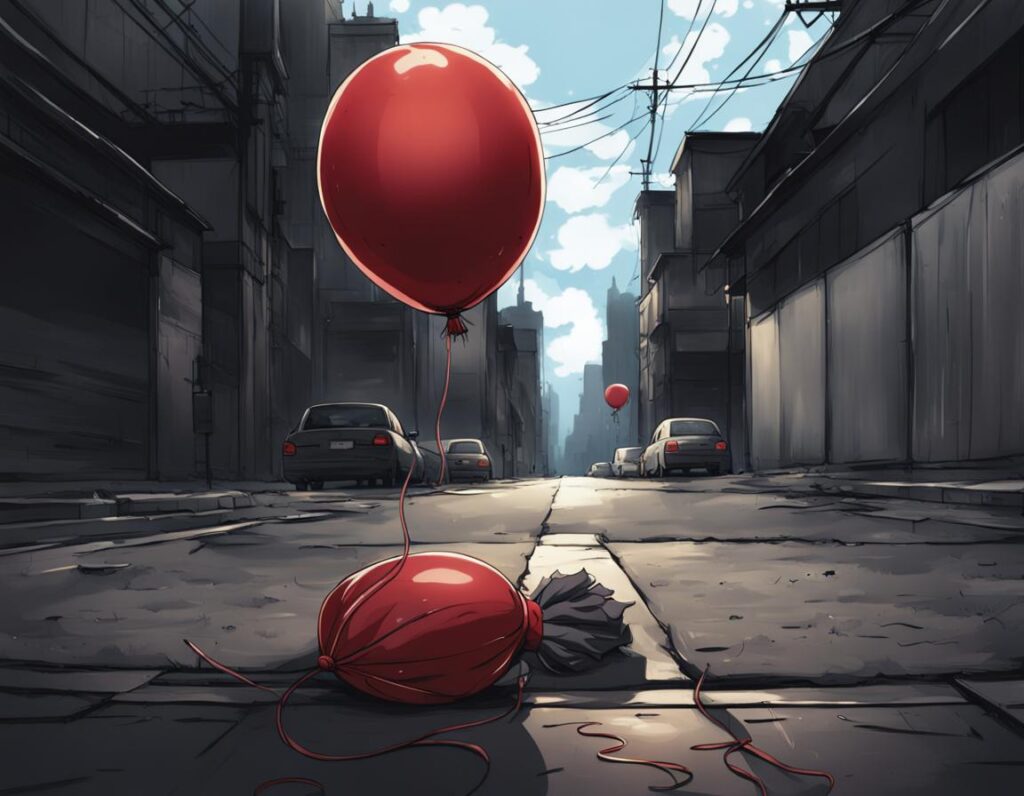December 11, 2023
Rosy Retrospection: Meaning and Repercussions
“People were kinder when I was a kid!” “We could sleep with the doors unlocked back then!” “There was justice and respect for others!” You have surely heard something like that yourself. You have very likely seen people making such claims, usually followed by the response “OK, boomer!” This phenomenon is called rosy retrospection.
In social psychology, rosy retrospection is defined as the tendency to view the past in a disproportionately positive light, filtering out the negative aspects and highlighting the positives. It’s a confirmation bias expression. And as any confirmation bias, it can be extremely insidious, with far-reaching repercussions.
So, to figure all this out myself, in this post I’m taking a closer look at rosy retrospection: what it is, its connection with nostalgia, what is said (and what is not, which is as critical), and the repercussions it has for all of us.

Rosy Retrospection is (also) a Generation-Gap Problem
As the “OK, boomer” part in the introduction might reveal, rosy retrospection often – but not always, as we will see – involves a generation-gap aspect. That is, it’s often older people who tend to voice such claims about the past, and it’s often younger people who refute them.
This makes sense, because older people have a personal recollection of the past, whereas younger people do not. That is, older people remember a certain time – with the assumption their memory is fact-based, rather than emotion-based – whereas younger people do not.
The important thing here to understand is that all this is relative on many levels.
The Relative Aspect
First of all, “older” and “younger”, self-evidently, is a relative designation. Boomers are older than Gen Xers, but they both appear as dinosaurs to Gen Zers. This implies that, at the same time, we might be calling others out for their rosy retrospection, while falling victim to it ourselves.
For example, when a boomer says “Everyone had equal opportunities back in the 70s, as long as you worked hard”, a Gen Xer will easily explain why that is untrue, while at the same time claim (and be called for it by a Gen Zer) that a good degree can guarantee you a good job.
To state the obvious, both examples are generalizations. Not all people of a given generation hold the same beliefs. That’s the whole point of avoiding simple answers to complex questions. Humans and societies are very complex. And it is indeed our inability to generalize that renders rosy retrospection problematic.
Rosy Retrospection and Generalizing Progress
Progress is very hard to define on a generic level. That is, we can say things like “computers today are faster than in the 80s” or perhaps “more people in Europe can access higher education today than in the 15th century”, but the more we generalize, the more things begin to fall apart.
On the surface, some claims seem obvious (and might even be fairly accurate depictions). For example, it’s reasonable to claim “humanity has progressed if we compare today with the dark ages”. But progress is neither linear nor universal; it involves steps forward and steps backward, and it also affects different people and different aspects of our societies disproportionately.
The truth is, in any given temporal chunk of human history, we’ll discover that some things have improved for some people and in some places, while others have deteriorated.
Who Are You?
If you are rich, male, Caucasian, cis, straight, healthy, you probably are in as great a state as any such person in the (recent) history of the (Western) world. Similarly, if you are a poor African-American trans woman with health problems, you’re overwhelmingly likely to have faced severe discrimination. Obviously, there is a large gray area in-between.
The reason this relativity is relevant in the case of rosy retrospection is because it blinds those with some degree of privilege. To put it simply, you don’t need to be rich, Caucasian, or a man to have enjoyed privilege. We virtually all do, comparatively to someone else.
For example, it is too easy for a cis person to claim “it was all simpler before, there were just men and women! What’s with the stupid pronouns now, people have gone crazy!” For such a person, the current sociocultural context means unnecessary complexity. However, a non-binary person would have a very different approach to this matter.
This should also be a warning in regard to the “ok boomer” part: A misguided Gen Zer who is cis straight might romanticize a past that a gay boomer knows to be a lie all too well.

The Repercussions of Rosy Retrospection
The societal repercussions of rosy retrospection are obvious: Increased social injustice, marginalized voices become more marginalized, minorities face increased discrimination, and so on. Overall, romanticizing the past tends to favor patterns of dominance.
I mean, can you imagine how intolerably unacceptable would be to hear a very old person saying something like “Ah, buses were much safer to ride in the 60s, because [use your imagination] didn’t dare to ride them”?
Even much milder expressions can also insidiously steer public opinion. For instance, uttering something like “traveling on an airplane was much more comfortable in the 60s” is both partly inaccurate – comfortable as in, what? higher noise level and stinkier engines? – and also indirectly revealing an ideological stance: “Flying should be expensive so that only privileged people can use it”.
The specifics of the claim are beyond the scope of the postNonetheless, it becomes important to realize that "Only rich people should travel" is as problematic as "It only costs $20 to fly from A to B. I had no plans or need to go there, but I might as well do to make a YouTube video about it. Fuck the environment!" , but that the utterance carries ideological baggage (no pun intended) is beyond doubt.
But there are consequences for the individual, too.
As with every instance of confirmation bias, rosy retrospection keeps us from the truth in favor of believing a comfortable, romantic lie. Though for some people self deception is a perfectly valid approach, it’s unsustainable in the long run.

The thing with roses is we remember the beauty and the smell. We forget the thorns, the amount of care that went into making the damn thing flower through the year.
Nostalgia is dangerous because it only makes us only see the greener grass. As we know, even in lush, green grasslands, we have patches of brown, decaying grass.
– a 90s kid 🤫
Well said!
I do not know how subjective re-appraisals are. they could always be countered.
“When I was a lad, we could go out without fear”. Counter: You still can, but nowadays parents are projecting protective paranoia, and paranoia is a contagion.
“When i was a lad there was no t so much world conflict and distrust” Counter: There was a heck of a lot more. 2 world wars, perpetual middle east conflict, cold war, numerous civil wars in South America, Mao, Stalin and so on…. Difference is, the media were not milking it for every nuance and alarm, and shoving it over us at every chance.
The media indeed play a crucial role. Paired to the toxic role of the social media, and you have a pretty volatile mixture of confrontation.
My parents survived WWII, their parents the Great Depression. And being immigrants (except for my Mexican grandfather, who was upper middle class educated and in the family pharmaceutical business).
I am aware of how privileged I am to be even a white WOMAN, and to have had the resources I had disposable to me when I became chronically ill in 1989. It has been incredibly hard – and I know so many other people have it so much harder because of their position in life and world society. I am sometimes amazed Black people still talk to us – even the meagre promises of the winning Union side in the Civil War – 40 acres and a mule? – were quickly ignored, and racism of the same toxicity hasn’t really changed: white people do not have to have ‘The Talk’ with their children.
No rosy view of the past – when life was ‘solitary, poor, nasty, brutish, and short’, and slightly less than that only for the wealthiest and luckiest. When I was a kid, even though lucky enough not to be exposed personally to the worst: I grew up in Mexico City, and it was hard for a 7-year old to understand the poor brown people whose livelihood depended on serving people who had it somewhat better; even then, the rich required their maids to wear uniforms. Even I understood the EXTRA burden: being pleasant to your employers on top of cleaning their toilets.
I didn’t live it, but ‘The Grapes of Wrath’ didn’t surprise me when I read it.
i just wish the world would focus its wealth on making sure everyone has a chance to health and education (including women) – instead of letting dictators not only despise the lowliest, but take advantage of them by their lying.
I would argue most forms of discrimination (i.e. based on skin color, gender, etc.) can ultimately be traced back to economic factors. In other words, racists have an issue not with brown people but with poor brown people. At least I’ve never seen anyone protesting about the arrival of emirs and sheiks, coming to Mykonos on their 300-foot yachts or their private Boeings.
This of course is weaponized by the rich, who tell the (ever-shrinking) middle class “Don’t let Fernando steal your hard-earned money”, while they amass truly obscene amounts of wealth and resources.
As I said in the post, the tendency to romanticize the past – in various forms, from personal reminiscing to social media aesthetics – has clear dominance patterns. It’s like role-playing subjugation.
It is entirely economic, as there are no physical characteristics that define different races. It’s been discovered that there is no difference in DNA between races, and neither do genetic factors align with race characteristics.
Racism was concocted in the Göttingen school in the late 18th century and has been around ever since, though recent anthropology has debunked it.
The curious thing is that the world was less interconnected, although it already was far more interconnected than during the 19th century, and so on backwards. In part, this issue of memory is also an issue of privacy, latent time for processing what happens to oneself, and so on. We have much more external memory today than any previous generation has ever had. This affects how our memory works. And this also affects how we form (or do not form) bonds with others through interactions. Example: before search engines and cheap personal computers, we could check an information on an encyclopedia, but we could also ask a person that was supposed to know more than us. Thus, we opened the door to a potential relation. Nowadays, we can avoid the relation to others entirely and just obtain the information right away. But what mattered was not the sheer information, but the affective tint that painted the whole exchange in search of the information. That is why conceptuality won’t save us — we need bonding.
The observation regarding processing the event is an apt one. For many of our experiences we need a certain level of maturity to understand (or deunderstand/reunderstand!)